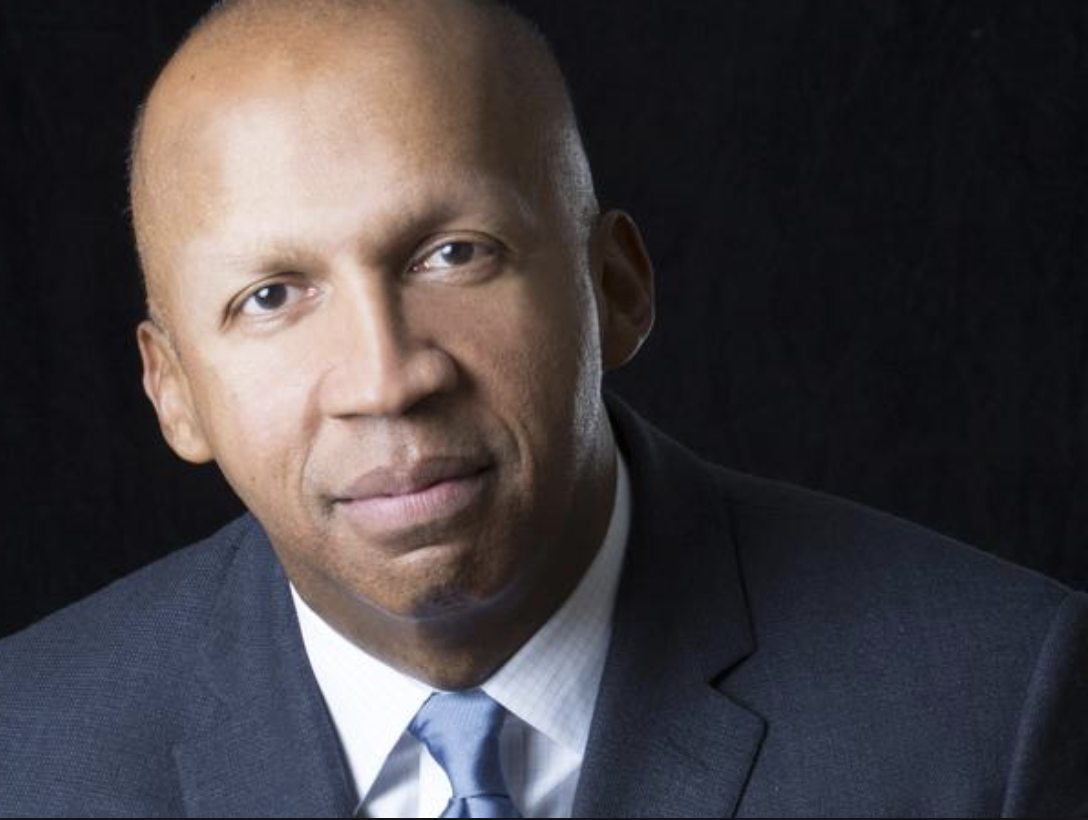Lawyer, author, speaker and criminal justice reform advocate Bryan Stevenson spoke in the Garvey Center auditorium last night, Feb. 18, sharing his thoughts on how individuals can confront racial injustice head-on and shape a better America.
His speech was part of Oklahoma Christian University’s Complex Dialogues lecture series, which began 10 years ago with the goal of tackling difficult subjects like mass incarceration.
Growing up in Delaware in the mid-1960s, Stevenson said he attended first grade at colored school, but was later was integrated into the wider public school system, a privilege afforded to him only through the work of civil rights attorneys.
“I have no illusions about the fact that I wouldn’t be standing here today if it weren’t for those lawyers getting proximate to poor kids like me,” Stevenson said.
Their bravery, according to Stevenson, set the stage for his academic success through college. But upon reaching his senior year of college as a philosophy major, future plans were far from determined.
“One day, someone came up to me and said, ‘You’re a senior, and you’re a philosophy major, what are you going to do after college?’” Stevenson said. “I took that as a hostile question, because I realized nobody was going to pay me to philosophize for them. So I started trying to figure out how to stay in school.”
Stevenson received his undergraduate degree and then found his way to Harvard Law School, where he said his interest in criminal law and social justice issues grew immensely. During his studies, Stevenson said he was required to spend a month working with an organization providing legal services to death row inmates.
A seemingly simple first task—telling a death row prisoner he would not be executed for at least a year—would change his views on criminal justice forever.
“For the third time, I told this man he was not at risk for execution any time in the next year,” Stevenson said. “And he said, “Thank you, thank you, thank you. You are the first person I’ve talked to in two years who isn’t a death row prisoner or death row guard. I haven’t talked to [my family] in two years, because I was afraid they’d show up, and I’d have an execution date. I didn’t want to deal with that. But now, because of you, I’m going to see my wife. I’m going to see my kids.’
That man and I started talking, and it turned out we were exactly the same age—the same birthday, the same month, the same year. He started asking me questions about my life, I started asking questions about his life and we fell into this deep conversation. Forty-five minutes turned into an hour, an hour turned into two hours, two hours turned into three hours, and we were still talking.”
Stevenson said this interaction, one of several he would experience throughout decades working as a death row lawyer, fortified his belief that change happens only when people are proximate and willing to engage one another.
When conversations like these between people of different races stop, misconceptions are allowed to flourish, Stevenson said. In years past, he said these false narratives were the driving force behind the mistreatment of Native Americans and the institution of slavery.
“The people who owned slaves didn’t want to feel immoral,” Stevenson said. “They didn’t want to feel unchristian. So they made up this narrative saying black people aren’t as good as white people. They’re not fully human, they can’t do this, they can’t do that, and that narrative of ignorance created an ideology of white supremacy.”
While slavery has been outlawed in the U.S. for more than 150 years, Stevenson said these false narratives were passed down through generations and are the driving force behind punitive criminal justice laws designed to punish rather than reform.
In order to heal the wounds of past racial mistreatment and kill remaining false narratives, Americans should begin to more openly embrace their flawed history and learn from it like other nations have done, according to Stevenson.
“You can’t go 200 feet in Berlin without seeing markers or stones that have been placed next to the homes of Jewish families abducted and killed during the Holocaust,” Stevenson said. “The Germans want you to go to the Holocaust museum. They don’t want to be thought of as fascists and Nazis forever. They’re trying to change the narrative. But in America, we don’t talk about slavery.”
Throughout his talk, Stevenson discussed four key points the audience should follow in order to combat racism and create a better society: Spend time and build relationships in poor neighborhoods, squash false narratives by combating prior mistreatment head-on, remain hopeful and be willing to put yourself in uncomfortable and inconvenient situations.
But to conclude his keynote address, Stevenson held the Christian audience in attendance to an even higher standard.
“I want to say something to my friends of faith here—we are living at a time where people have got to say more about the challenges that we’re facing,” Stevenson said. “There have been times before where we had all of these terrible things happen, and we didn’t say anything. I just want to let you all know that we have to lift up our voices.”












[…] To read more about the content of Bryan Stevenson’s lecture, click here. […]